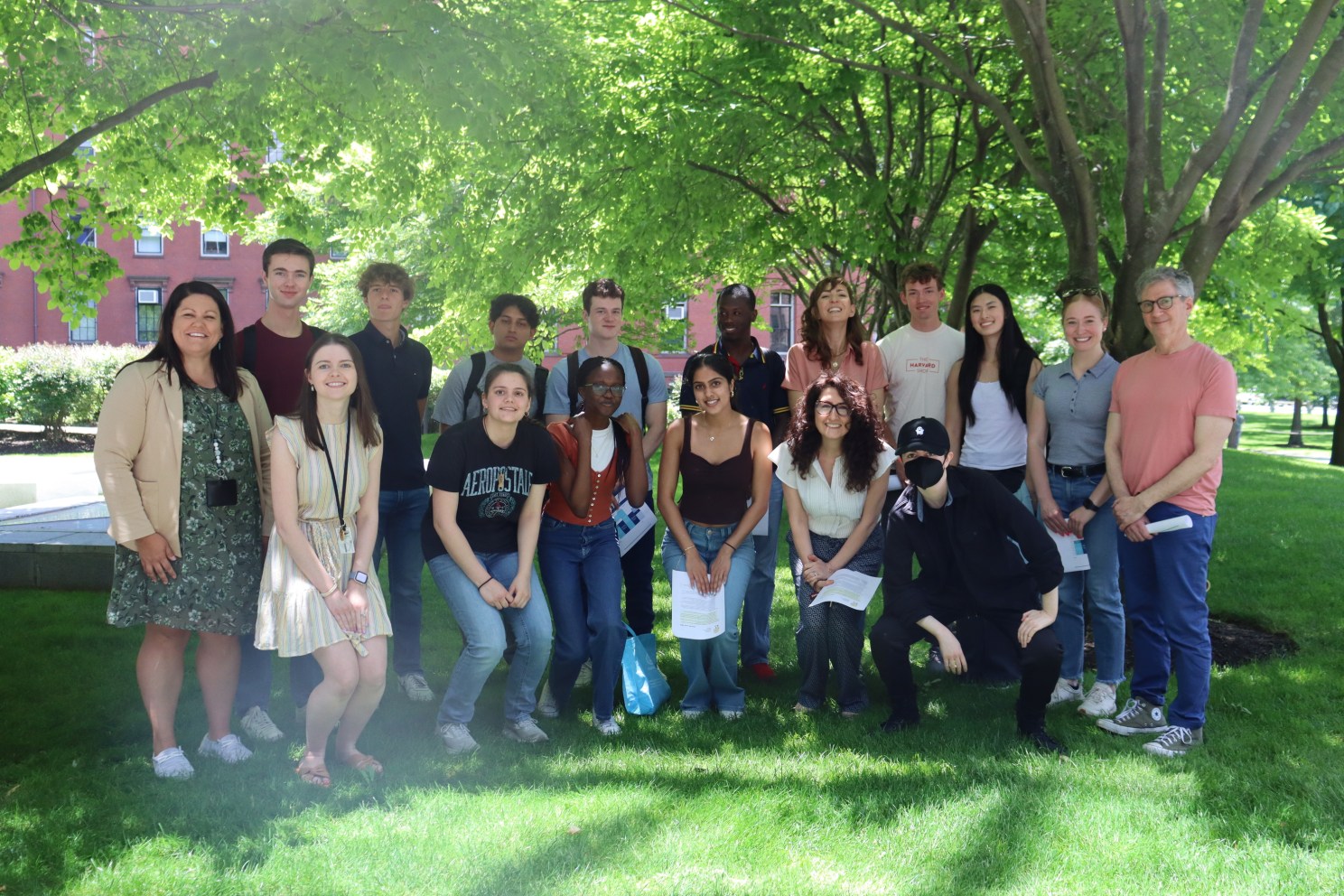Inaugural FUEL program paves path for future scientists

Students, faculty, and staff gathered outside the Northwest Building to celebrate the inaugural FUEL program.
Yahya Chaudhry
The Department of Chemistry and Chemical Biology (CCB) celebrated the successful completion of its inaugural Foundational Undergraduate Experiences in the Laboratory (FUEL) program on Aug. 7 with a dynamic poster session and certificate ceremony. This event marked the end of a 10-week research program that immersed ten rising sophomores from Harvard College in intensive lab work, professional workshops, and networking.
As a Harvard Summer Undergraduate Research Village-adjacent program (HSURV), FUEL offered students a fully supported experience, combining the structured environment of HSURV with department-specific initiatives. “We utilized the incredible framework of the HSURV program while creating an experience that was fully supported, staffed, and funded by our department,” said Deana Reardon, CCB’s executive director, emphasizing the department’s commitment to undergraduate opportunities.
FUEL targets undergraduates interested in life sciences research, providing a comprehensive package including a stipend, housing, and meals, allowing students to focus entirely on their research and development. Participants were also encouraged to engage in broader activities within the Village, fostering collaboration and community.
“The CCB FUEL program is the culmination of multi-year planning efforts to focus on increasing undergraduate access to hands-on laboratory experiences early in their college experience,” Reardon noted. The initiative originated from a 2021 white paper identifying a critical issue: less than half of the students entering US colleges intending to major in STEM fields graduate with a STEM degree, with women and underrepresented minorities disproportionately affected.
This program addresses gaps by proposing a restructured life sciences curriculum and better guidance into labs. The department established the first-year seminar FYSEMR 52T: Learning How to Think Like a Scientist: An Introduction to Scientific Research, taught by lecturer Sien Verschave and Professor Dan Kahne, to lay the foundation for FUEL. “The seminar focused on developing reasoning skills to prepare students to engage in scientific research early in their college careers,” Verschave said.
The seminar demystified scientific literature, and students presented scientific papers they had discussed with faculty authors. By the semester’s end, students were ready for the FUEL Summer Program, which provides training in essential lab techniques critical for advanced studies and careers in scientific fields. “This program was created to bridge the gap between undergraduate classroom learning and academic research,” said lecturer Dilek Dogutan Kiper.
FUEL also includes a “Lab Match Challenge,” connecting students with Harvard faculty and research labs, enhancing networking and mentorship opportunities. The poster session allowed participants to showcase their skills, with a keynote by Patterson Rockwood Professor of Energy Daniel Nocera, who praised the students’ achievements.
Reflecting on the program’s success, Dan Kahne, department chair and Higgins Professor of Chemistry, acknowledged the need for broad support to sustain undergraduate research. “Our goal is to ensure that any student seeking research opportunities can access them,” he said.
The seminar’s popularity has surged, with interest from 102 students, up from a previous cap of 15. “These numbers confirm the importance of sustaining this program and creating others like it,” Kahne said, affirming the program’s success and potential for future expansion.




